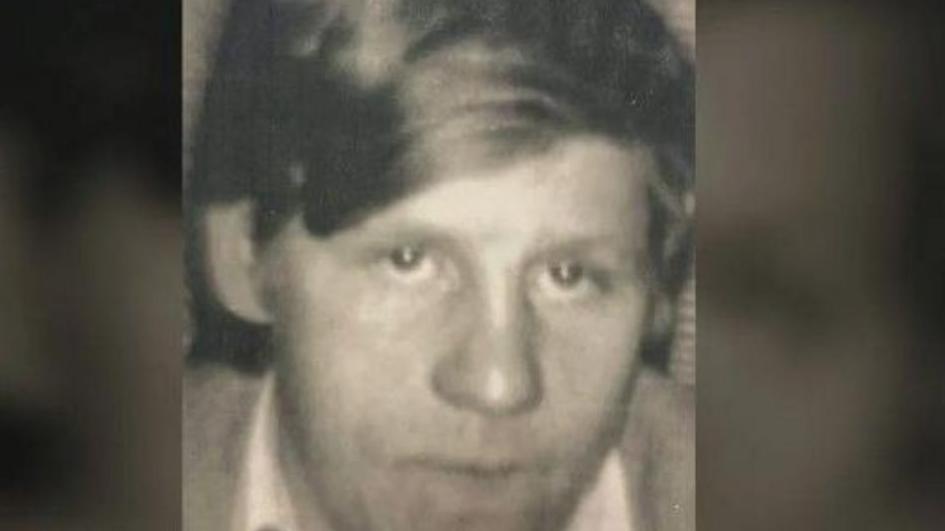Thomas Friel died after fall when shot, coroner rules

Thomas Friel was fatally injured on 18 May 1973 after returning from a night out
- Published
A Londonderry man who died four days after he was injured during rioting in 1973 died as the result of a fall after he was struck by a rubber bullet, a judge has ruled.
Thomas Friel, 21, died after he was injured in the Creggan area of Derry in May 1973.
On Friday, Judge Mark Reel, acting as coroner, told a court in Belfast that Mr Friel died from injuries sustained when he hit his head on the ground after being struck by a rubber bullet.
He said that in all likelihood, Mr Friel was struck by a rubber bullet fired by a soldier referred to in court as Soldier B.
This is the third time a coroner has examined his death.
The initial inquest in 1974 returned an open verdict.
In 2021, a coroner ruled that Mr Friel was most likely injured by a missile causing him to fall and suffer further injury, but that verdict was quashed by the High Court last year.
Judge Reel told the court on Friday that the timings of events given in evidence suggested soldiers' accounts were inaccurate.
He added that information had been inserted into statements by those taking them.
Judge Reel said that one soldier described the Royal Military Policeβs statement-taking process as βa relaxed processβ.
The inquest previously heard evidence from Soldier B, who in March said he was on patrol when they came under attack from a group of youths.
He said he saw a man falling to the ground and being dragged away by a group of youths after he fired a baton round.
When asked what caused the man to fall, Solider B said he did not know.
Another witness, identified as Solider C, told the inquest he had never witnessed baton rounds being fired at the ground in order to bounce up and hit people.
He said that regulations stipulated that baton rounds be fired at the "body mass" of a person.
He then added that the weapons they would have used were "completely inaccurate".
- Published11 March
- Published1 December 2021